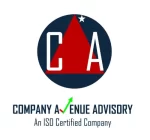Common Questions
Most Popular Questions
The process involves obtaining approval from the sole proprietor, incorporating a private limited company, transferring assets and liabilities, and complying with legal requirements for conversion.
Reasons may include limited liability protection, enhanced credibility, easier access to funding, scalability, and tax benefits associated with corporate structures.
The conversion must comply with the provisions of the Companies Act, 2013, and involve obtaining necessary approvals from regulatory authorities, filing required documents, and paying prescribed fees.
Yes, most businesses can be converted, subject to compliance with legal requirements, eligibility criteria, and assessment of business viability.
Documents such as incorporation documents, asset transfer agreements, board resolutions, special resolutions, and necessary forms for filing with the RoC are required.
The process must be completed within a specified timeline, as per the requirements of the Companies Act, 2013, and any applicable regulations.
Non-compliance may lead to rejection of conversion by regulatory authorities, penalties imposed by the RoC, and adverse impact on the business's legal status and operations.
Yes, Avenue Advisory provides expert assistance for conversion, including assessing eligibility, preparing documents, filing applications, and compliance monitoring.
Avenue Advisory ensures compliance with the conversion procedure by guiding clients through the process, preparing accurate documents, and liaising with regulatory authorities for approvals.
Outsourcing to Avenue Advisory ensures accuracy, compliance, timely processing, and expert support, enabling businesses to focus on their core operations while transitioning to a corporate structure.




